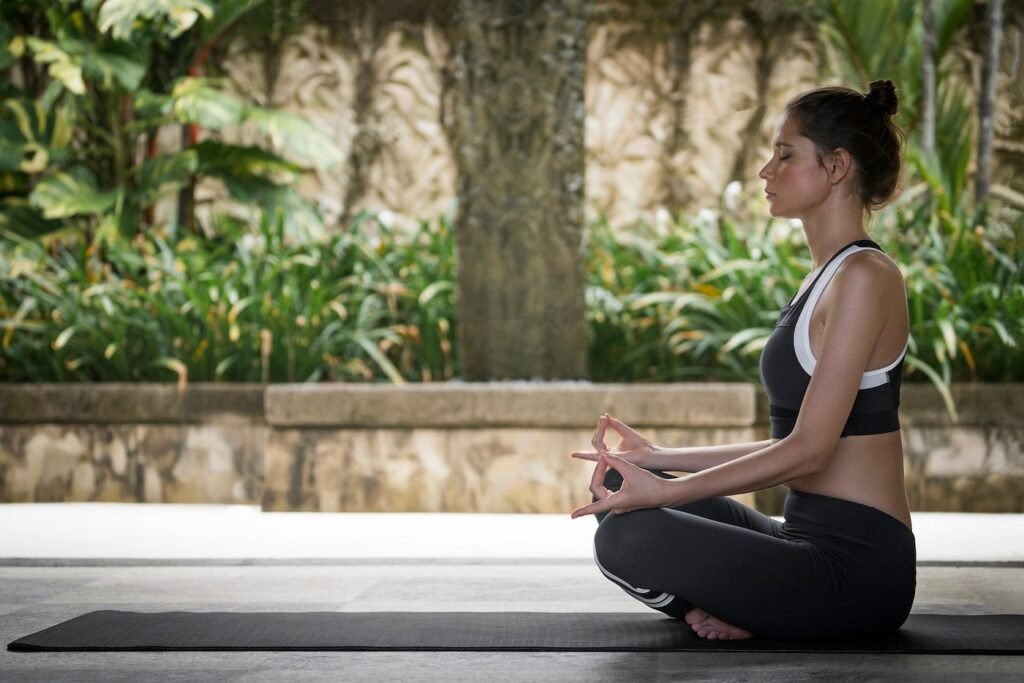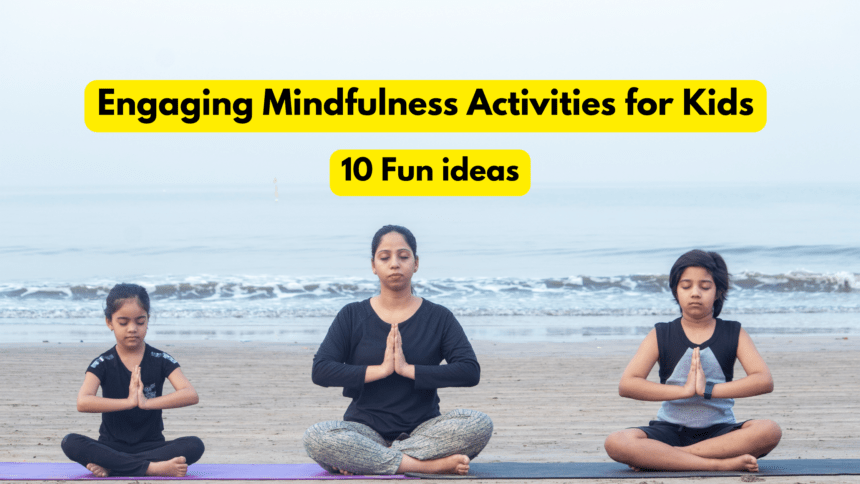Introduction
In our fast-paced, technology-driven world, children face numerous distractions that can hinder their ability to concentrate. As parents, it’s essential to equip our kids with tools that can help them stay focused and grounded. Mindfulness practices have emerged as a powerful method to enhance concentration and overall well-being. This blog will explore what mindfulness practices are, why they are important, and ten practical mindfulness exercises you can do with your kids to boost their concentration.
What is Mindfulness?
Mindfulness is the practice of being fully present and engaged in the moment, aware of your thoughts, feelings, and surroundings without judgment. It involves paying deliberate attention to what you are doing, whether it’s eating, walking, or breathing, with a sense of curiosity and acceptance.
For children, mindfulness translates to an increased awareness of their thoughts and emotions, helping them to better manage stress and improve their focus. By incorporating mindfulness into their daily routines, kids can learn to cultivate a sense of calm and clarity that enhances their ability to concentrate on tasks at hand.
Why Practice Mindfulness?
Mindfulness offers a multitude of benefits, especially for children. Here are a few reasons why practicing mindfulness is crucial for kids:
- Improved Concentration: Mindfulness exercises help children train their attention, making it easier for them to concentrate on schoolwork, hobbies, and other activities.
- Enhanced Emotional Regulation: Mindfulness teaches kids to observe their emotions without getting overwhelmed, which can lead to better emotional regulation and fewer meltdowns.
- Reduced Stress and Anxiety: Regular mindfulness practice has been shown to reduce stress and anxiety levels, promoting a sense of calm and relaxation.
- Better Self-Awareness: Mindfulness encourages children to become more aware of their thoughts and feelings, fostering greater self-awareness and understanding.
- Improved Social Skills: As kids become more attuned to their own emotions, they also become more empathetic and understanding of others, enhancing their social interactions.
10 Mindfulness Practices you can do with your kids
Introducing mindfulness to your children can be a fun and rewarding experience. Here are ten mindfulness practices that you can do with your kids to help boost their concentration:
1. Mindful Breathing

Mindful breathing is a simple yet powerful practice that can help kids calm their minds and improve their focus. Encourage your child to take slow, deep breaths, paying attention to the sensation of the air entering and leaving their body. This practice can be done for a few minutes each day or whenever your child feels overwhelmed.
2. Body Scan
The body scan is a mindfulness exercise that helps children become more aware of their physical sensations. Guide your child to lie down and close their eyes. Starting from their toes and moving up to their head, ask them to pay attention to each part of their body, noticing any tension or discomfort. This practice promotes relaxation and body awareness.
3. Mindful Listening
Mindful listening involves paying close attention to the sounds around you. Take your child to a quiet place and ask them to close their eyes and listen to the different sounds they can hear. This exercise helps kids improve their focus and become more present in the moment.
4. Mindful Eating
Mindful eating encourages children to pay attention to the taste, texture, and smell of their food. During meals, ask your child to take small bites and chew slowly, savoring each bite. This practice not only enhances their appreciation of food but also helps improve their concentration.
5. Gratitude Journaling
Gratitude journaling is a practice that helps kids focus on the positive aspects of their lives. Encourage your child to write down three things they are grateful for each day. This practice fosters a positive mindset and helps children develop a greater sense of appreciation and awareness.
6. Mindful Walking

Mindful walking involves paying attention to the sensations of walking, such as the feeling of your feet touching the ground and the movement of your body. Take a walk with your child and ask them to focus on these sensations. This practice can be both grounding and refreshing, helping to improve concentration.
7. Visualization
Visualization is a mindfulness practice that involves imagining a peaceful and relaxing scene. Ask your child to close their eyes and picture a place where they feel happy and calm, such as a beach or a garden. This exercise can help reduce stress and enhance focus.
8. Mindful Coloring
Mindful coloring involves focusing on the process of coloring without worrying about the outcome. Provide your child with coloring books and ask them to pay attention to the colors and patterns they are creating. This practice promotes relaxation and concentration.
9. Progressive Muscle Relaxation
Progressive muscle relaxation is a technique that involves tensing and then relaxing different muscle groups in the body. Guide your child to tense a muscle group, hold for a few seconds, and then release. This practice helps reduce physical tension and promote a sense of calm.
10. Loving-Kindness Meditation
Loving-kindness meditation is a practice that involves sending positive thoughts and wishes to oneself and others. Guide your child to sit quietly and repeat phrases such as “May I be happy, may I be healthy, may I be safe.” Then, ask them to send these wishes to family members, friends, and even people they don’t know. This practice fosters empathy and compassion, enhancing emotional well-being.
Conclusion
Mindfulness practices offer a valuable toolset for children to navigate the complexities of their world with greater focus and calm. By incorporating these simple yet effective exercises into your child’s daily routine, you can help them improve their concentration, reduce stress, and develop a greater sense of self-awareness and emotional regulation. As parents, we have the opportunity to nurture our children’s minds and well-being through mindfulness, setting them up for success in all areas of their lives. So, take a few minutes each day to practice mindfulness with your kids and watch as their concentration and overall well-being flourish.













